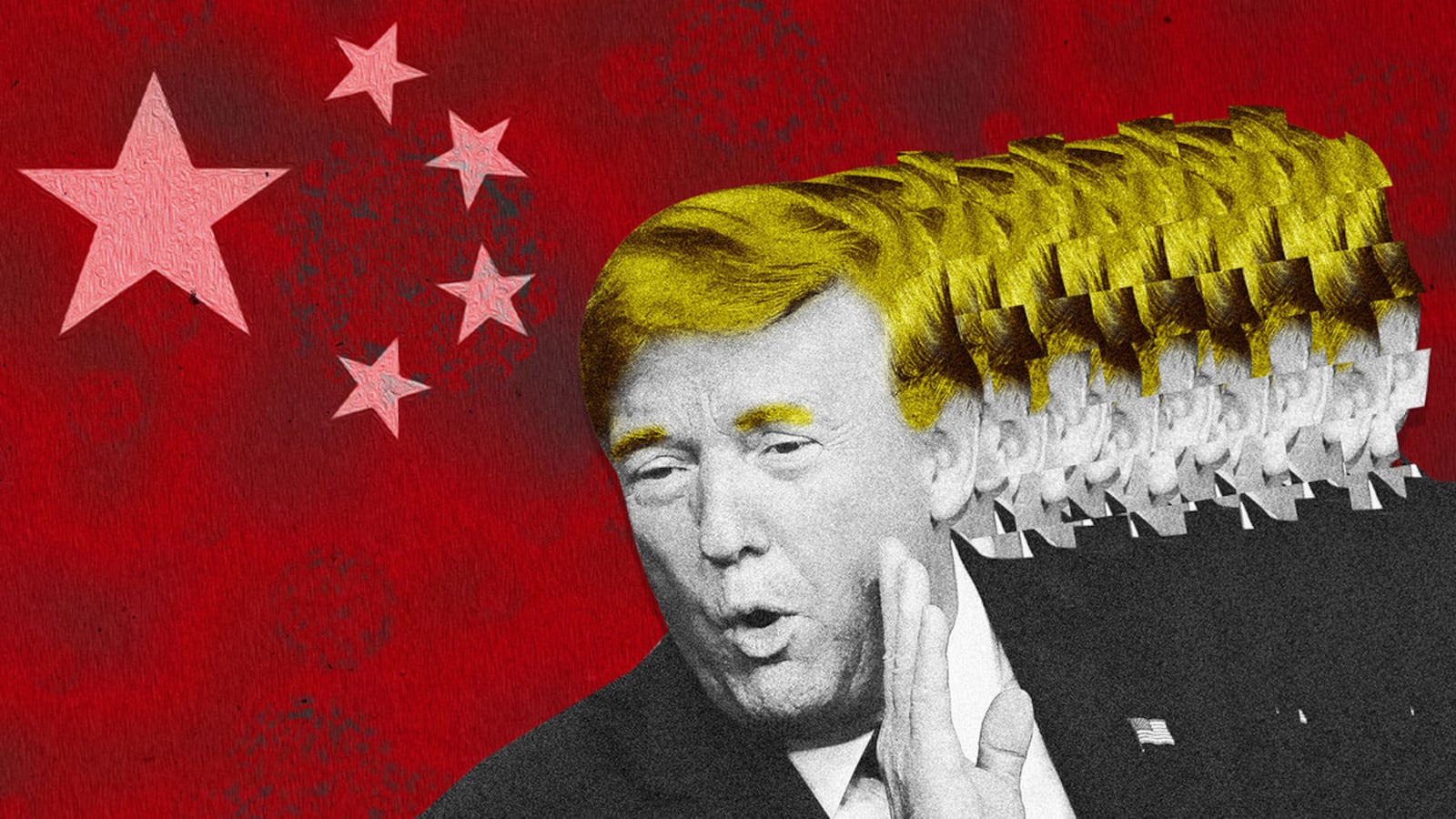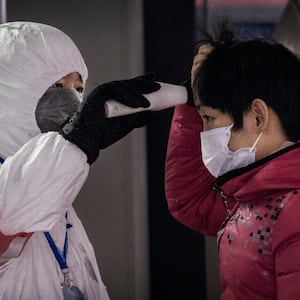In a private conversation with President Donald Trump during the rapid acceleration of the coronavirus pandemic, China’s leader Xi Jinping went out of his way to deploy one of the most effective diplomatic maneuvers of the current American era: aggressive flattery.
In a phone call to discuss the international health crisis last week, Xi stressed to Trump how decisive, strong, and successful he feels his U.S. counterpart’s public-health and economic responses have been, two U.S. officials with knowledge of the matter said. The flattery came at a time when Trump was continuing to experience a deluge of criticism for his administration’s response to the pandemic. It also came as some of the American president’s most prominent officials were still engaged in a multipronged campaign to castigate the Chinese government for an alleged coronavirus cover-up and to rebrand the illness as the “Chinese virus” and the “Wuhan virus.”
Trump had begun incorporating that language into his public utterances, framing the pandemic as a war whose origins were in China. But lately, he has softened his tone and adopted a more deferential stance toward Xi—whom he routinely calls his good “friend” and an “incredible guy”— going out of his way to compliment and excuse Beijing for its response to the virus, and to even publicly shrug off new reporting on China’s disinformation apparatus in the midst of the pandemic.
In the past few days, Trump has also told multiple officials that Xi has assured him that the Chinese government wouldn’t lie about the numbers of reported cases of coronavirus currently coming out of the epicenter of the outbreak, Wuhan, two sources familiar with the comments said.
“For a long time, the president has enjoyed an epic bromance with Xi,” a senior administration official said. “If I were them, I would be doing the same thing. Why wouldn’t you try to leverage that relationship with a [U.S.] president who goes on TV so many times to say how great he thinks your guy [Xi] is.”
The president’s messaging on Xi and China appears to have trickled down to other parts of the federal government as well. According to two senior Trump administration officials, the State Department has also toned down the tough talk on Beijing for not revealing its coronavirus case numbers sooner.
In recent cables, it appears the department is also no longer calling the virus the “Wuhan virus” and is instead referring to it as “COVID19” or simply “COVID.” As one senior Trump official told The Daily Beast: “There’s an understanding that the department—and the administration as a whole—is going to back away from that terminology.”
It is a fairly jarring turn. Just earlier this month, the State Department had transmitted a cable that included a section detailing National Security Council “Top Lines” and official talking points on the “[People’s Republic of China] Propaganda and Disinformation on the Wuhan Virus Pandemic.”
The State Department did not return a request for comment. But the shift comes as White House senior adviser Jared Kushner, along with the State Department and FEMA, set up the deliveries of essential medical supplies and protective gear from U.S. health-care distributors based in China.
The new tone is particularly notable since, for weeks, Secretary of State Mike Pompeo had accused China’s leaders of contributing to the global spread of the virus because they took too long to warn the rest of the world of its spread and silenced health-care workers who tried to speak out about it. In his remarks to the press, Pompeo has continuously referred to the coronavirus as the “Wuhan virus” and brushed off suggestions that such a term was racist. Beijing’s leaders pushed back on the designation, claiming that the terms are xenophobic and inaccurate now that the virus has spread to dozens of countries across the world.
“We condemn the despicable practice of individual U.S. politicians eagerly stigmatizing China and Wuhan by association with the novel coronavirus, disrespecting science and WHO,” China’s Foreign Ministry spokesman Geng Shuang said at a recent briefing. “The international society has a fair judgment, and Pompeo’s attempts of slandering China’s efforts in combating the epidemic is doomed to fail.”
According to cables reviewed by The Daily Beast, China launched a campaign to discredit the Trump administration's use of the term “Wuhan virus.”
“Dr. Zhong Nanshan, a respiratory disease expert widely respected by the Chinese public for his work on both SARS and the coronavirus, has been quoted widely by state-media outlets questioning the origin of COVID-19,” the cable said. “At a March 18 press conference at Guangzhou’s First Affiliated Hospital, Zhong again said there was ‘no evidence’ indicating the virus originated in Wuhan, adding that it would be ‘irresponsible’ to make conclusions about the origin of COVID-19 without further information.”
It all amounts to a concession to Beijing from Trumpworld, which for a year has made alleged submissiveness to China—particularly on trade policy—a major political talking point against the president’s likely 2020 Democratic presidential rival.
“Joe Biden, incredibly, dismisses China as an economic competitor, so it’s little wonder that while Biden was in office he welcomed China’s rise and sat back and watched as the Chinese ate America’s lunch,” Trump campaign communications director Tim Murtaugh said last year.
The president himself has routinely claimed that he’s so tough on China that Beijing desperately wants Biden to win in November, insisting that “China wants Sleepy Joe BADLY!”
Senior Trump officials and Capitol Hill lawmakers, alarmed by the recent change of tone in the administration’s public-facing relationship with China, are still pushing for Pompeo and the president to continue to counter China’s disinformation campaign, according to one official working on China policy.
And on that front, Foggy Bottom still appears to be complying. Two officials with knowledge of the cables told The Daily Beast that the State Department was asking foreign countries to track Chinese disinformation efforts. One State Department cable said the People’s Republic of China was pushing out stories that focused on “preventing a second wave of outbreaks from ‘imported cases.’”









